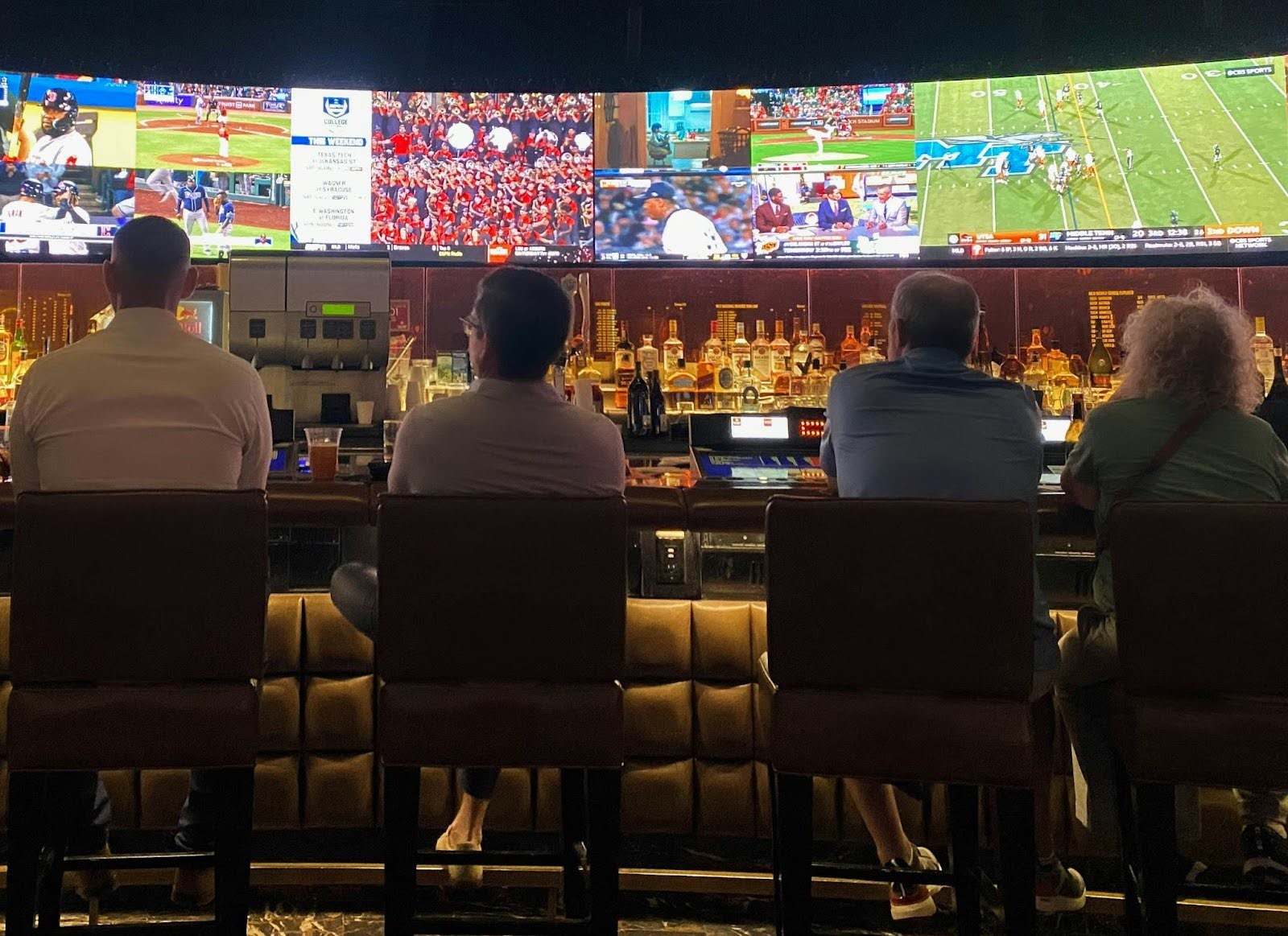American gambling changed forever when the Supreme Court killed PASPA in 2018. But here's what most people missed: those shiny new sportsbooks weren't planning to stay sports-only for long.
What started as a mad dash to capture sports betting dollars has turned into something much bigger. Today's betting apps look nothing like those early, bare-bones platforms. They're full-blown entertainment hubs where you can bet the spread, spin slots, and play live blackjack, all from the same account.
This wasn't accidental. It was inevitable.
Those Early Days: Pure Sports, Pure Chaos (2018-2020)
When states first cracked open their doors to legal sports betting, the mission was crystal clear: grab every football fan, basketball junkie, and March Madness enthusiast you could find.
DraftKings and FanDuel had a head start thanks to their daily fantasy roots. Meanwhile, the old-school casino giants like MGM and Caesars brought something different, decades of knowing how gamblers actually behave.
The numbers hit hard and fast:
• New Jersey processed $4.58 billion in sports wagers during 2019 alone
• Pennsylvania crossed $3.2 billion in handle within just 18 months
• By 2020, you could legally bet sports in more than 20 states
But something interesting happened as the honeymoon phase ended. Customer acquisition costs went through the roof. Everyone was throwing $500+ bonuses at new users, and the math wasn't adding up.
That's when the smart money started looking beyond Sunday afternoon football.
The Great Casino Pivot (2020-2023)
Here's the thing about sports betting that nobody talks about in those glossy marketing campaigns: the margins are brutal. Most sportsbooks keep between 7-10% of every dollar wagered. After paying for customer bonuses, marketing, and operations, there's not much left.
Casino games? Completely different story.
The numbers tell the tale:
• Slot machines typically hold 8-12% (sometimes more)
• Table games can push past 15% hold rates
• Players don't need to wait for Sunday's games, they can play anytime
• No seasonal dips when baseball season ends
Smart operators started testing the waters with simple slot games. The expansion followed a predictable playbook: hook users with sports betting, then gradually introduce them to casino options in states where online gambling was actually legal. Companies that offered seamless bet365 casino login access from day one had a massive advantage, letting players jump between sports bets and slot spins without missing a beat.
Learning from the Masters: bet365's Playbook
You can't tell this story without talking about bet365. While American companies were figuring out sports betting, these guys had already cracked the code overseas.
Founded back in 2000, bet365 never saw sports betting and casino gaming as separate businesses. By the time they landed in America in 2019, they'd spent nearly two decades perfecting the integrated approach across dozens of international markets.
Their U.S. expansion timeline:
• 2019: Hit New Jersey running with both sportsbook and casino ready to go
• 2022-2025: Rolled out their sportsbook to 14+ states
• 2024: Added Pennsylvania as their second full-service U.S. market
What makes bet365 different isn't just their game selection, it's how everything connects. One account, one wallet, seamless switching between betting on the Lakers and playing live roulette during halftime.
The Money Talks (And It's Saying “Casino”)
Still think this evolution was just about offering more games? Let's look at the numbers from New Jersey in 2023:
Revenue breakdown that changed everything:
• Online casinos: $1.87 billion
• Sports betting: $1.32 billion
Wait, what? Despite sports betting handling more total action ($9.5 billion vs $6.2 billion), casino games generated 42% more actual revenue. That 3:2 ratio has held steady across every market that allows both products.
Suddenly, every sportsbook executive was asking the same question: “How fast can we get our casino up and running?”
The State-by-State Puzzle
Here's where things get complicated. While over 30 states now allow sports betting, only seven have opened up to regulated online casinos:
The lucky seven (as of 2025):
• New Jersey (the pioneer, since 2013)
• Pennsylvania (2017)
• West Virginia (2019)
• Michigan (2021)
• Connecticut (2021)
• Rhode Island (the newest addition, 2024)
• Delaware (though their options are pretty limited)
This creates a weird split personality for operators like bet365. In New Jersey and Pennsylvania, they can offer the full experience. But in places like Colorado or Ohio? Sports only, and they're probably counting the days until that changes.
The Tech Challenge Nobody Talks About
Merging a sportsbook with a casino isn't like combining two websites. These are fundamentally different beasts under the hood.
Sports betting systems need:
• Live odds feeds updating every second
• Risk management that can handle six-figure bets on random prop markets
• Integration with official league data (because nobody wants another Tim Donaghy situation)
• Complex algorithms for building same-game parlays
Casino platforms require:
• Games from dozens of different software providers
• Certified random number generators (because regulators don't mess around)
• Progressive jackpot networks spanning multiple sites
• Live dealer studios with HD streaming that actually works
Getting all of this to play nice together, while staying compliant in multiple states with different rules? That's a technical mountain that's invisible to users but costs millions to climb.
Survival of the Richest
The push toward full-platform gambling has created a new reality: if you can't afford to build (or buy) casino capabilities, you're probably not going to survive long-term.
Recent acquisitions tell the story:
• Penn National grabbed Barstool (then sold it to ESPN when things got complicated)
• Caesars dropped $4 billion on William Hill
• DraftKings bought Golden Nugget Online Gaming to instantly gain casino expertise
• Flutter keeps pumping money into FanDuel's expansion
International operators like bet365 are sitting pretty here. They've already built these platforms and know how to run them. Meanwhile, pure-play sportsbooks are scrambling to catch up or looking for acquisition targets.
What Players Actually Experience
From a user's perspective, this evolution has created something entirely new. A typical Saturday might look like:
1. Morning research: Check injury reports while sipping coffee
2. Pre-game action: Drop some parlays on the early games
3. Waiting entertainment: Hit the slots while games are still in warmups
4. Live betting: Adjust positions as the action unfolds
5. Late night: Keep the action going with some blackjack after the games end
It's gambling as an all-day experience instead of just event-specific betting. Operators love this because it means higher lifetime value per customer. Players seem to enjoy having everything in one place.
How Regulators Are Handling the Shift
State regulators have taken wildly different approaches to this trend. New Jersey embraced it early and has reaped the tax revenue benefits. Other states maintain strict walls between sports betting and casino licenses.
The integration momentum isn't slowing down, though. Illinois legalized sports betting in 2020 but is still debating whether to allow online casinos. Given the revenue numbers coming out of states that allow both, it's probably more a matter of when, not if.
Beyond Gambling: The Entertainment Ecosystem
The next phase is already starting to take shape. Forward-thinking operators are adding:
• Social features: Leaderboards, achievements, and ways for friends to compete
• Content streaming: Live sports, poker tournaments, gambling-focused shows
• Fantasy integration: Both daily contests and traditional season-long leagues
• Esports betting: Because apparently people will bet on anything competitive
• Enhanced live experiences: Studio-quality dealers and immersive game shows
Crystal Ball: What 2026 Looks Like
Based on current political winds and industry chatter, 2026 could be the year this whole thing hits critical mass.
Expected game-changers:
• California online betting: The world's fifth-largest economy keeps kicking the can down the road, but industry insiders whisper about a 2026 ballot initiative that could finally break the deadlock
• Texas sports betting: Even in the Lone Star State, attitudes are shifting. A regulated Texas market could easily generate over $1 billion annually
• Florida clarity: The Seminole Tribe compact mess has dragged on for years, but resolution could open up America's third-largest state
Tech evolution we're watching:
• AI personalization: Machine learning will create custom experiences for every player
• Crypto mainstream: Digital currencies will move from novelty to standard payment option
• VR casinos: Virtual reality will finally be good enough for practical gambling applications
The regulation wild card: 2026 might bring the first serious federal framework discussions. A uniform set of rules across state lines would be a game-changer for operators who currently juggle dozens of different compliance requirements.
International operators like bet365 are positioned perfectly for this scenario. They've already mastered unified regulatory frameworks in other countries while their American competitors have only dealt with the current state-by-state chaos.
Our predictions for 2026:
• 40+ states offering legal sports betting
• 15+ states with integrated online casinos
• Market dominated by 5-7 major platform operators
• Total U.S. gambling revenue topping $60 billion annually
The companies positioning themselves for this integrated future, especially those with proven casino expertise, will likely control what could become a $100+ billion industry by 2030.
The Bottom Line
The shift from pure sportsbooks to full casino platforms has reshaped American gambling. Companies like bet365, with their integrated international model, showed everyone else the blueprint. The revenue numbers don't lie, integrated platforms aren't just the future, they're already winning today.












